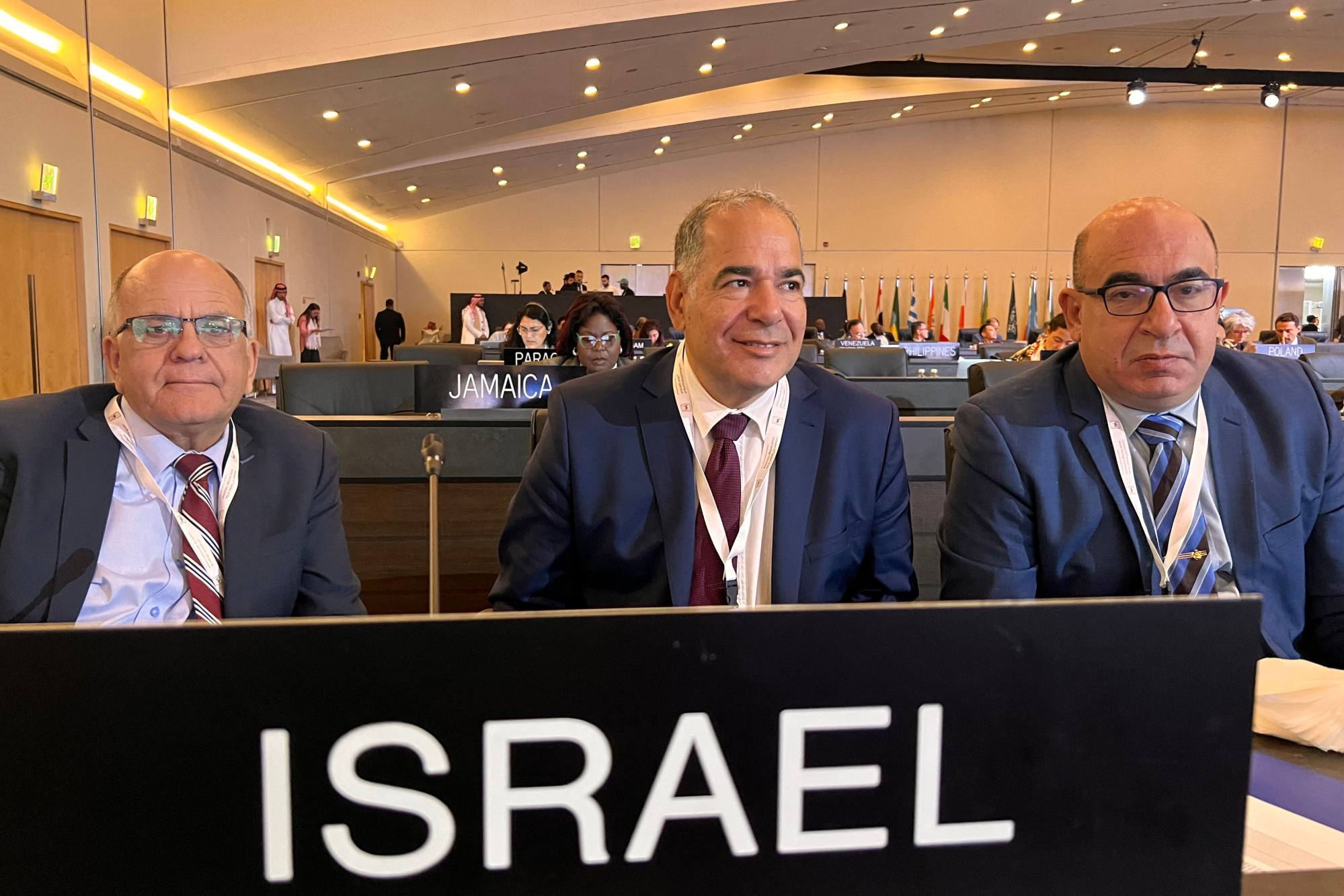
Israel attends Saudi Arabia’s Unesco event, sparking speculation of normalising ties: ‘happy to be here’
- The visit by an Israeli delegation to the Unesco meeting in Riyadh comes amid speculation of a possible normalisation of ties
- The delegation arrived via Dubai as there are no direct flights between Israel and Saudi Arabia
“We are happy to be here – it’s a good first step,” said the official, who did not want to be named given the sensitivities of the visit, during the meeting.
“We thank Unesco and the Saudi authorities.”
The delegation, including a security official, joined the Unesco meeting on Monday, sitting behind a sign that said “Israel” on the front of their desk.
The visit has been “very good – they treat us very well”, the official said.
The “Israel” sign drew stares from Saudis working at the meeting, where more than 50 sites are contenders to join the coveted world heritage list.
“That is God’s command. The issue is bigger than us and we can’t object to it,” said a young Saudi man working among the support services, when asked about the Israeli delegation.
A Unesco diplomat said the agency’s director general Audrey Azoulay had been instrumental in securing Israel’s participation in Riyadh.

“It’s the result of several years of work by Audrey Azoulay to create, in the heart of Unesco, the conditions for a dialogue between all the states of the region,” said the diplomat, who did not want to be named.
While the visit does not have any overt political significance, it comes at a time of growing rumours of moves to bring the two countries closer.
According to reports, a Palestinian delegation visited Riyadh last week to discuss the way forward if Saudi Arabia and Israel were to formalise relations.
The fact that the visit was coordinated by Unesco suggests “obstacles” remain to Saudi-Israeli normalisation, said Aziz Alghashian, a Saudi analyst and expert on the bilateral relationship.
“This is most likely a result of Saudi Arabia being more open to the world, which will include Israelis, not a result of bilateral relations between Saudi Arabia and Israel,” Alghashian said.
“The Israelis will definitely milk this as the first step, when actually it was facilitated by Unesco. It’s not really because of their diplomatic skill or diplomatic victories.”
He compared the Israeli delegation’s visit to a visit this summer by Israeli eSports players for the Gamers8 festival, which also required “third-party coordination” by global tournament organisers.

.png?itok=arIb17P0)